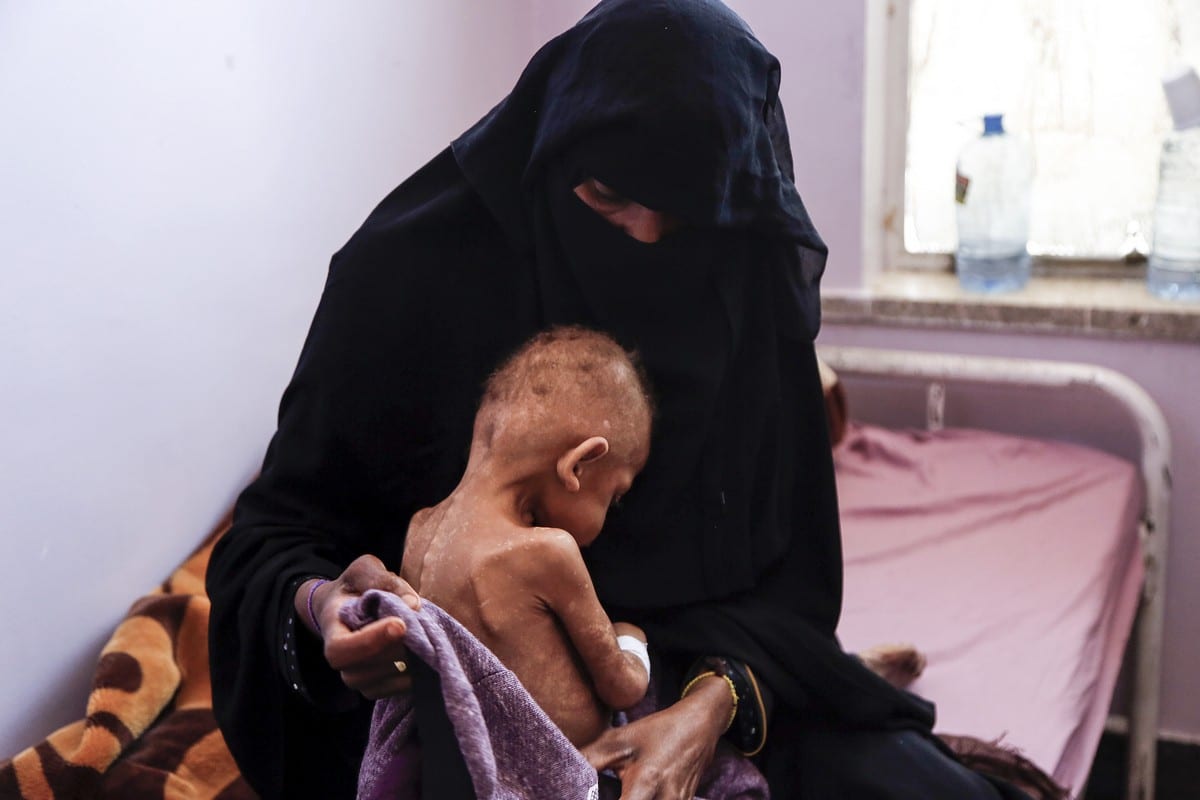The food aid arm of the United Nations said in a report that the program will come to a halt in August, which will adversely affect many people suffering from malnutrition in the war-torn Arab country.
“The severe funding shortage, coupled with the continuous interruption of supplies, will force us to completely suspend malnutrition prevention activity in Yemen, starting next August, which will have an impact on the 2.4 million malnourished people in the country, who are among the most vulnerable,” it said.
To mitigate the critical situation in Yemen, the UN agency added it intends to redirect the limited funds available to treat the most severe cases of malnutrition, which pose a greater danger than moderate malnutrition.
Due to the severe funding deficit, the WFP has found it necessary to convert more than 900,000 beneficiaries of cash-based transfers to in-kind food distributions, according to the report.
The UN agency highlighted that it believes that the move, despite the unfortunate circumstances, is necessary to ensure the survival of the program and the continued provision of aid to those who need it the most.
The funding for the WFP’s six-month plan, spanning from August 2023 to January 2024, has been severely slashed.
Only 28% of the total required amount of $1.05 billion has been met. Notably, contributions worth $139 million were confirmed in June from Australia, the European Union, Norway, the United States, and the Yemen Humanitarian Fund.
The underfunding of the critical plan threatens the WFP’s ability to provide necessary aid to those suffering from malnutrition in Yemen. This raises significant concerns about the future well-being of millions of malnourished individuals in the crisis-hit Arab nation.
Saudi Arabia initiated a brutal war of aggression against Yemen in March 2015, enlisting the assistance of some of its regional allies, including the United Arab Emirates, as well as massive shipments of advanced weaponry from the US and Western Europe.
The Western governments further extended their political and logistical support to Riyadh in their failed bid to restore power in Yemen to the country’s former Saudi-installed government.
The former Yemeni government’s president, Abd Rabbuh Mansur Hadi, resigned from the presidency in late 2014 and later fled to Riyadh amid a political conflict with Ansarullah. The movement has been running Yemen’s affairs in the absence of a functioning administration.
The war further led to the killing of tens of thousands of Yemenis and turned the entire nation into the scene of the world’s worst humanitarian crisis.
